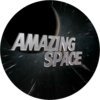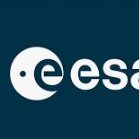Members Can Post Anonymously On This Site
22nd November: LIVE Aurora Borealis Seen From Finland! Northern Lights Live Stream
-
Similar Topics
-
By European Space Agency
ESA's Biomass mission is on the launch pad at Europe’s Spaceport in Kourou, French Guiana. Don’t miss the live coverage of liftoff on Tuesday 29 April, on ESA WebTV. Coverage will start at 10:55 CEST with commentary live from Kourou and ESA’s European Space Operations Centre in Germany. The Vega-C rocket carrying Biomass is scheduled for liftoff at 11:15.
View the full article
-
-
Check out these Videos



Recommended Posts
Join the conversation
You can post now and register later. If you have an account, sign in now to post with your account.
Note: Your post will require moderator approval before it will be visible.